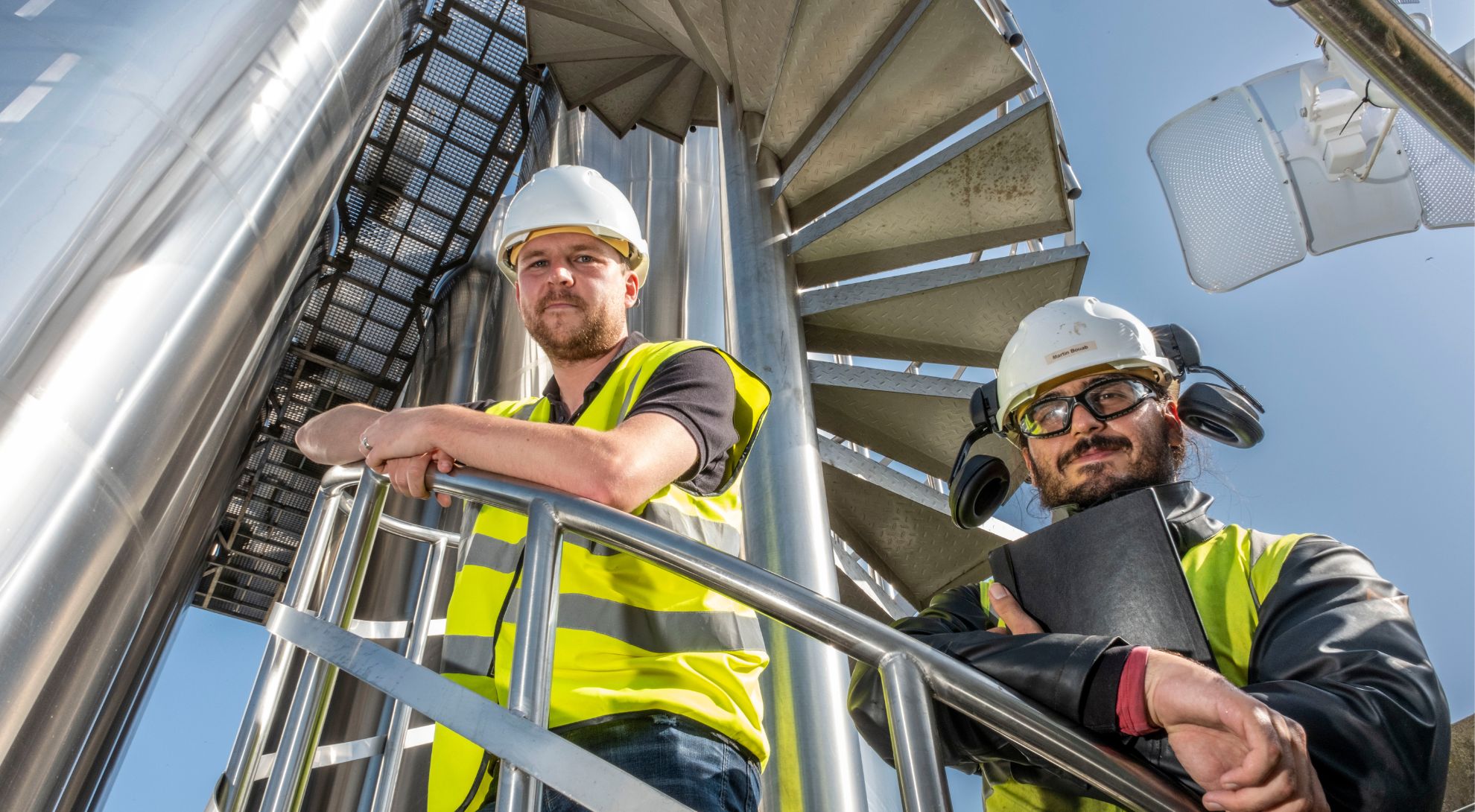
Scotland is renowned worldwide for its production of whisky and salmon. Each year three billion tonnes of whisky co-product is produced, and there’s a global reliance on billions of wild-caught fish to feed the aquaculture industry.
Helping suppliers achieve net zero goals
Marrying the Scotch whisky and salmon industries together, MiAlgae is making a wave for change, growing microalgae rich in Omega-3, sustainable, competitively priced and a vegan alternative to the current Omega-3 produced worldwide.
The innovative biotech team at MiAlgae noticed a rapid decline in fish stocks globally and a shortfall of one million tonnes of Omega-3. To tackle environmental issues, the SME made its entire business structure circular. By supplying the surge in demand for Omega-3 and pioneering for change in the aquaculture, pet food and human health product industries, MiAlgae has created an ecologically oriented economy.
MiAlgae takes the-nutrient rich co-products from whisky that would naturally be wasted and conducts revolutionary biology to grow microalgae and harness its potential. Omega-3 traditionally comes from algae, which is found in fish oil. By cutting out the middle process of feeding algae-rich food to fish, and giving suppliers a direct food source, MiAlgae has not only helped the environment but has created a vibrant circular process that will benefit its whole supply chain and improve food security.
Funding
Zero Waste Scotland first worked with MiAlgae in 2017, providing initial Circular Economy Business Support (CEBS) support early on, including fundamental advice and guidance. In 2021, Zero Waste Scotland’s Circular Economy Investment Fund (CEIF) provided grant funding to the business, with private sector investment also secured.
This financial aid allowed the MiAlgae team to scale up its demonstrator site in Balfron from a singular 30,000 litre microalgae tank to eight 30,000 litre tanks. This funding also saw the improvement of downstream processing equipment and additional infrastructure to the site, which shows clients the scalable and reliable process.
The environmental benefits have been sizeable and MiAlgae helps its suppliers reach their net zero goals by providing microalgae that is a direct replacement source for traditional Omega-3s.
MiAlgae’s Balfron site is estimated to save 18,000 tonnes of CO2 a year, and with the hope of scaling through Scotland’s network of whisky distilleries, this number could equate to an average of 100,000 tonnes of CO2 a year, per site. In terms of business growth, MiAlgae is now out of pre-revenue, creating enough volume for small sales to the pet industry.
There’s been considerable growth from the CEIF support, seeing MiAlgae employ 10 additional staff members across production, technical and engineering roles.
Learnings and opportunities
MiAlgae is in a strong position when looking at Scope 3 emissions as they work with like-minded businesses who all have a collaborative goal in mind. The main feedstock supplier for MiAlgae comes from the whisky industry, who have all pledged to become net zero by 2040. Similarly, on the other side of the supply chain, the aquaculture and pet food manufacturers are committed to reducing their carbon footprints.
Julian Pietrzyk, Head of Technical Transfer at MiAlgae, led the development and planning of the commercial demonstrator site in Balfron, which included the design and procurement of the equipment and infrastructure. He said: “We’re utilising co-products from different industries and implementing innovative biotechnology processes to create value products that protect the environment, and also create a vibrant circular economy that suppliers can benefit from.”
Hoping to share his learnings from the process, Julian expands on some struggles MiAlgae has encountered. He said: “There’s plenty of learnings to be had and scaling has been extremely difficult. It is difficult to get support when sourcing the capital costs for scaling to commercialisation, which is why Zero Waste Scotland’s CEIF is so unique as it helped us to part-fund the CapEx alongside private investment.” Looking into the future, Julian shares what is next for the MiAlgae team.
He explained: “We’re trying to expand and develop more sites, working closely with whisky distilleries to amplify our reach across Scotland. In the next 6-12 months, we plan to progress two commercial sites live and producing. Technology licensing in the UK and further afield is next on our horizon and we’re proactively looking for opportunities overseas.”
Pablo Chisbert, Research and Development Scientist at MiAlgae, has an interesting connection with Zero Waste Scotland. He explained: “I first heard about MiAlgae when I was doing my master’s degree. Zero Waste Scotland gave a talk as part of our Circular Economy module and they introduced my class to MiAlgae. When I graduated I spotted a job opening, applied, and the rest is history.”
Julian shares his advice for any businesses looking to adapt a circular economy structure to their process. He said: “Opportunities are all around us. So many industries have surplus co-products that they are having to pay to get rid of, spray on land and ultimately impact the environment around us."
"You don’t have to look too far to find them, spot the openings and collaborate with like-minded businesses to tackle the environmental issues we’re all facing.”

